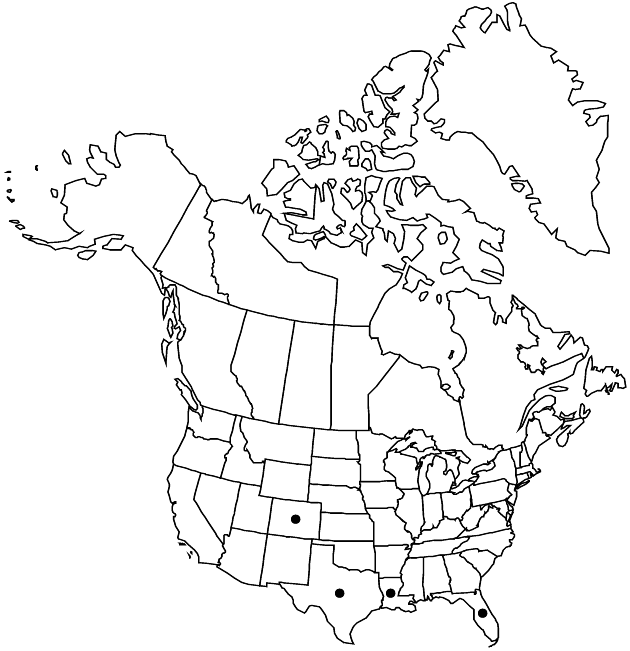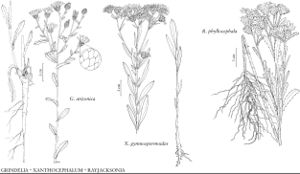Rayjacksonia phyllocephala
Amer. J. Bot. 83: 369. 1996.
Common names: Gulf Coast camphor-daisy
Illustrated
Basionym: Haplopappus phyllocephalus de Candolle in A. P. de Candolle and A. L. P. P. de Candolle, Prodr. 5: 347. 1836 (as Aplopappus)
Synonyms: Haplopappus phyllocephalus var. megacephalus (Nash) Waterfall Machaeranthera phyllocephala (Nash) Small Machaeranthera phyllocephala var. megacephala (Nash) Shinners Sideranthus megacephalus
Annuals or perennials, 10–70(–100) cm, herbaceous to suffrutescent. Leaf blades oblong to oblanceolate, mid-cauline (2.5–)4–13 mm wide. Heads essentially sessile, often surpassed by distal leaves that continue to very base of heads. Involucres (6–)10–15 × 12–30 mm. Phyllaries in 3–4 series, loose, subequal, apices erect to spreading, 1.3–1.7 mm wide, herbaceous. Ray florets 17–38; corollas 8.5–19 mm. Disc florets: corolla tubes longer than limbs. 2n = 12.
Phenology: Flowering (Jul–)Sep–Dec (sporadically Feb–Jun).
Habitat: Sandy sites, along waterways, canal banks, dunes, beaches, salt flats
Elevation: 0–10 m
Distribution

Colo., Fla., La., Tex., Mexico (Tamaulipas).
Discussion
Selected References
Lower Taxa
None.
